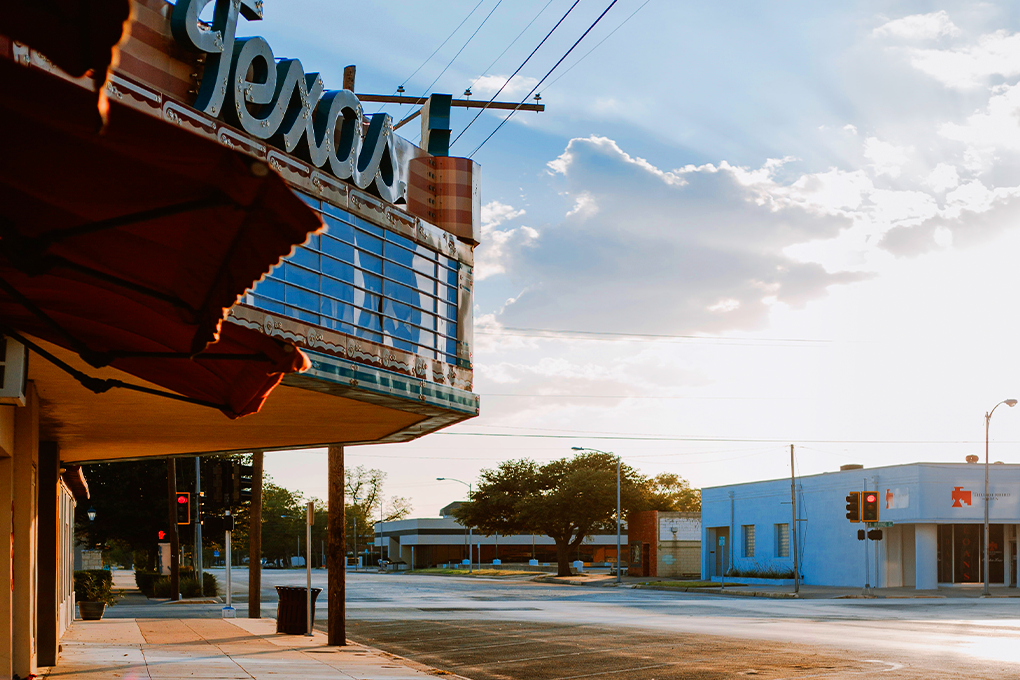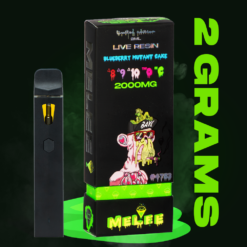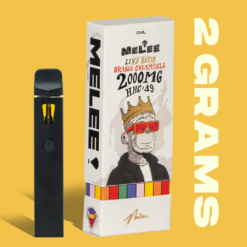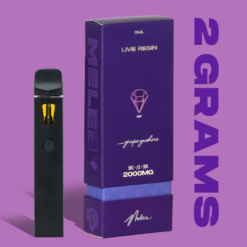Up until 2014, cannabis and anything even remotely associated with it was outright illegal in the United States. And to be taken seriously, the government got this codified in laws such as the 1937 Marijuana Tax Act and the 1970 Controlled Substances Act (CSA).
Then in 2014, the first attempt to legalize cannabis was realized with the enactment of the 2014 Farm Bill. This law allowed states to run pilot hemp programs under strict regulation. The objective was to facilitate research on hemp.
In 2018, this law was revised, making hemp completely legal. Subsequently, hemp was removed from the list of controlled substances and commercialized. For most people, the changes that have taken place in the cannabis/hemp industry may be hard to keep up with.
And with new cannabinoids emerging time after time, their legality is undoubtedly an issue that concerns many. So, in this article, we shine the spotlight on cannabinol (CBN), a cannabinoid that’s rapidly gaining traction among the cannabis faithful.
Everything is bigger in Texas! Check out more of our products at our shop!
Key Takeaways
- CBN is a mildly psychoactive cannabinoid formed when ∆9-THC is oxidized (exposed to light and air).
- CBN displays antimicrobial and neuroprotective properties. Incidentally, its much-touted sleep-promoting effect has no scientific backing.
- The 2018 Farm Bill legalized hemp and its derivatives, e.g., cannabinoids.
- CBN is federally legal, as is also the case in Texas, thanks to HB 1325, signed into law in 2019.
CBN And Federal Law
In 2018, the federal government enacted the Agriculture Improvement Act, aka the Farm Bill, effectively legalizing hemp. Unlike the 2014 version, this law makes hemp an agricultural commodity that can be commercially exploited.
However, this law legalizes hemp conditionally. It stipulates that the plant’s THC content must not exceed 0.3% by dry weight. THC is the primary psychoactive ingredient responsible for the “high” people get from using cannabis.
Due to its psychoactivity, it’s understandable why the federal government would want to curtail it. Taken in large doses, ∆9-THC can produce adverse short-term side effects. And there’s evidence that chronic long-term use could have major negative health implications.
By permitting hemp cultivation, the federal 2018 Farm Bill ipso facto legalized hemp compounds. In fact, this is explicit in the wording used in the legislation defining hemp as;
Any cannabis plant, or derivative thereof, that contains not more than 0.3% delta-9-tetrahydrocannabinol (THC) on a dry weight basis.
Because CBN is a derivative of hemp, it is technically legal.
But CBN is not synthesized directly by cannabis. Instead, it results from the oxidation of ∆9-THC. This means it’s generally found in aged cannabis plant matter. Manufacturers of hemp products typically don’t have the luxury of waiting for ∆9-THC to oxidize. So, they speed up the process using artificial means.
Does this make CBN a synthetic cannabinoid relative to the Federal Analog Act? Not likely because one criterion for making such a determination is whether the precursor is derived from hemp. The other is whether the ∆9-THC concentration in the hemp plant material is 0.3% or less.
Generally, tetrahydrocannabinols are controlled substances (Schedule I) under the CSA. However, the 2018 Farm Bill redefined “tetrahydrocannabinols” and exempted “tetrahydrocannabinols in hemp.” As a result, THCs derived from hemp are not controlled under the CSA and are, therefore, federally legal.
Texas CBN Laws
The 2018 Farm Bill empowers states to come up with laws to regulate hemp farming within their jurisdictions. Subsequently, Texas lawmakers passed House Bill 1325 in 2019, making hemp legal in the state.
State hemp laws are clearer on what is or isn’t legal. In Texas, for example, all forms of hemp products are permissible except smokable variants. This directive by the Texas Department of State Health Services (DSHS) was upheld by a June 2022 Supreme Court ruling.
However, the fate of many cannabinoids remains uncertain in the Lone Star state. Delta 8-THC, for instance, is facing a renewed onslaught from the DSHS seeking to ban it. DSHS claims the compound is illegal, and its effects aren’t well understood.
CBN is not a ‘tetrahydrocannabinol,’ but the fact that it originates from ∆9-THC may just provide a reason for DSHS to question its legality. It’s also mildly psychoactive and can induce psychoactive reactions in large doses.
But if a May 2022 federal court ruling is anything to go by, CBN might have found a reprieve. In the ruling, the court found that Delta 8 products comply with the legal requirements of the 2018 Farm Bill. Therefore, they were federally legal.
For now, CBN and tens of other hemp-derived cannabinoids are legal in Texas, thanks to HB 1325.
Is CBN A Controlled Substance In Texas?
No, CBN is not a controlled substance in Texas as long as it’s obtained from hemp with a THC content of 0.3% or less.
So, it’s legal for businesses to sell, distribute, and for people to consume CBN products in the state. However, keep in mind that hemp products are accessible to people aged 21 and above. Not many understand why this is so, but it’s based on research suggesting that some compounds in cannabis, like ∆9-THC, can affect proper brain development in teenagers.
Moreover, CBN is not scheduled under the CSA, which leaves no doubt about its legality. As a relatively new cannabinoid, CBN’s demand is in flux. But with anecdotal evidence showing it may help promote sleep, it won’t be surprising to see its demand go up.
So far, studies on CBN’s ability to promote sleep provide mixed findings. However, its neuroprotective and antimicrobial effects have some scientific backing. There are suggestions that CBN might help with anxiety, which is welcome news considering the high stress levels of modern life. It means CBN may be therapeutically important after all.
CBN Possession Limits In Texas
Because CBN is not a controlled substance in Texas, it doesn’t have possession limits. This means anyone of legal age can buy as much CBN as they want. Obviously, you won’t find it as a standalone substance but as a supplement.
However, this does not give you carte blanche to over-indulge. If you are not sure how much CBN you should take, start with low dosages and work your way up.
Just as well because the hemp industry is booming, so finding products shouldn’t be difficult. However, remember to get hemp products from certified companies like Melee Dose. This is crucial due to growing concerns about the quality and safety of hemp products seeing that the industry is not regulated by the FDA.
Is CBN Legal In Texas?
The straightforward answer is yes. CBN obtained from cannabis grown in compliance with federal regulations is legal in Texas.
However, as mentioned earlier, cannabis laws are constantly evolving. What’s legal in one state might be illegal in another. Texas, for instance, prohibits smokable hemp products. So even if you get some flower claiming to be CBN-rich, you cannot smoke it in Texas.
Be that as it may, we don’t expect you to have problems with CBN gummies, oils, tinctures, capsules, etc.
Where To Buy CBN In Texas
While it’s good that hemp products are available in all forms and shapes, not all are high-quality, safe, and effective. This is why we recommend buying hemp from legit online companies like Melee Dose.
If you’re particularly interested in experiencing CBN’s sleep-promoting effect, try our 2 Gram Live Resin Disposable. It features the Grape Gushers strain, a type of indica dominant strain made by crossing Gelato #41 and Triangle Kush. An ideal vape pen for binging Netflix and chilling as it will likely have you couch locked in a relaxing daze.
Gifts Under $50
2 Gram Live Resin Disposable Vape: Grape Gushers (HHC, CBN, D9)
CBN: Frequently Asked Questions (FAQs)
What Does CBN Do To You?
CBN is known for its potential to promote relaxation and support healthy sleep cycles. It may also have anti-inflammatory and analgesic properties, and some studies suggest it could have neuroprotective effects.
What Is Stronger CBN Or CBD?
It’s difficult to compare the strength of CBN and CBD as they have different effects on the body. CBN is often associated with promoting relaxation and sleep, while CBD is known for its potential to alleviate pain and reduce inflammation. Both cannabinoids can be beneficial in different ways.
What Does CBN Make Me Feel Like?
CBN may make you feel relaxed and sleepy, especially when taken in higher doses. It may also help to reduce anxiety and promote a sense of calmness. However, individual experiences can vary depending on factors such as dosage, tolerance, and personal physiology.
How Does CBN Affect The Brain?
CBN affects the brain by interacting with the body’s endocannabinoid system, which helps regulate various bodily functions such as sleep, mood, and pain perception. It binds to cannabinoid receptors in the brain, potentially leading to a range of effects, including relaxation and sleep promotion.
Will CBN Make Me Groggy?
CBN may make you feel groggy or drowsy, especially in higher doses. It’s best to start with a low dose and gradually increase as needed to avoid feeling excessively tired or sleepy.
What Happens If You Take Too Much CBN?
Taking too much CBN can potentially lead to unwanted side effects such as drowsiness, fatigue, or brain fog. However, CBN is generally considered to be safe and non-toxic, so it’s unlikely to cause any serious harm. It’s always best to start with a low dose and gradually increase as needed to avoid taking too much.






